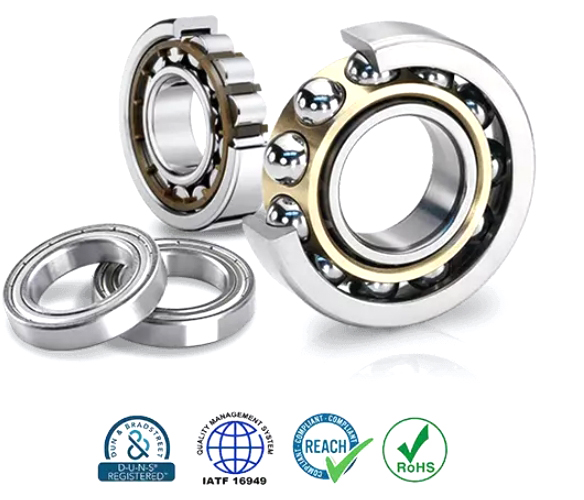Need Support?
Please provide your question. We’ll find you with the best support options.
Table of contents
When it comes to bearings, we often hear the term "ABEC rating," which is used to measure the precision of bearings. The ABEC (Annular Bearing Engineering Committee) rating system was established by the American Bearing Manufacturers Association to standardize the production and evaluation of bearings, making it easier for consumers to understand and compare bearings of different grades. However, the ABEC rating is not universally applicable to all applications, particularly when it comes to electric bicycles.
ABEC Rating Chart
| ABEC | ISO 492 | DIN 620 | JIS |
| ABEC 1 | Class Normal | P0 | Class 0 |
| ABEC 3 | Class 6 | P6 | Class 6 |
| ABEC 5 | Class 5 | P5 | Class 5 |
| ABEC 7 | Class 4 | P4 | Class 4 |
| ABEC 9 | Class 2 | P2 | Class 2 |
※ The International Organization for Standardization (ISO) standard is ISO 492, the German standard is DIN 620, and the Japanese standard is JIS B1514.
⚠️The ABEC rating ranges from ABEC-1 to ABEC-9, with the number inversely proportional to the tolerance level, meaning that higher numbers indicate lower tolerances. Higher ABEC ratings (lower tolerances) offer better precision, which can potentially impact the smoothness and efficiency of equipment operation, but it doesn't necessarily mean that the bearing-installed components will rotate faster.
In the industrial and high-speed motion fields, increasing the ABEC rating can result in smoother motion and lower friction. However, for most electric bicycle applications, higher ABEC-rated bearings might not always be necessary.
In electric bicycles, the choice of bearings for components like hub bearings, bottom bracket bearings, and others requires consideration of multiple factors. Factors such as load size, operating speed, and environmental conditions all influence bearing performance. For most riders, a medium-level ABEC-rated bearing might already provide sufficient performance without the need to pursue extremely high ratings.
In addition, factors specific to certain applications should also be taken into consideration, such as the size, materials, and sealing of the hub and bearings. These factors are equally important and impact the overall performance and durability of the bearings. Therefore, when selecting bearings, it is recommended to not only focus on the ABEC rating but also take into account the actual usage conditions of the product.
In conclusion, the ABEC rating is a standard for assessing bearing precision, but for electric bicycles, it shouldn't be the sole indicator for choosing bearings. When selecting bearings, a comprehensive consideration of various factors is necessary to ensure the bearings can provide optimal performance and durability under different usage scenarios.
Why is ISK BEARINGS frequently chosen as the specified bearing brand by major international companies?

Need Assistance Selecting The Proper Bearings?
If you need help selecting the best products for your specific industry application, ISK BEARINGS offers application support as part of our value-added services to make your job easier.
 Further Reading:
Further Reading:
Please provide your question. We’ll find you with the best support options.